The 2022 Harmony and Cooperation Civilization Forum, with the theme “Harmony and Cooperation – Towards a New Era of Digital Civilization,” was held on September 9.
The forum, jointly hosted by Tsinghua University and the International Confucian Association, brought together a diverse cohort of renowned experts from various fields around the world to discuss the unique role of “harmony and cooperation thoughts” in ordering human civilization in the digital era.
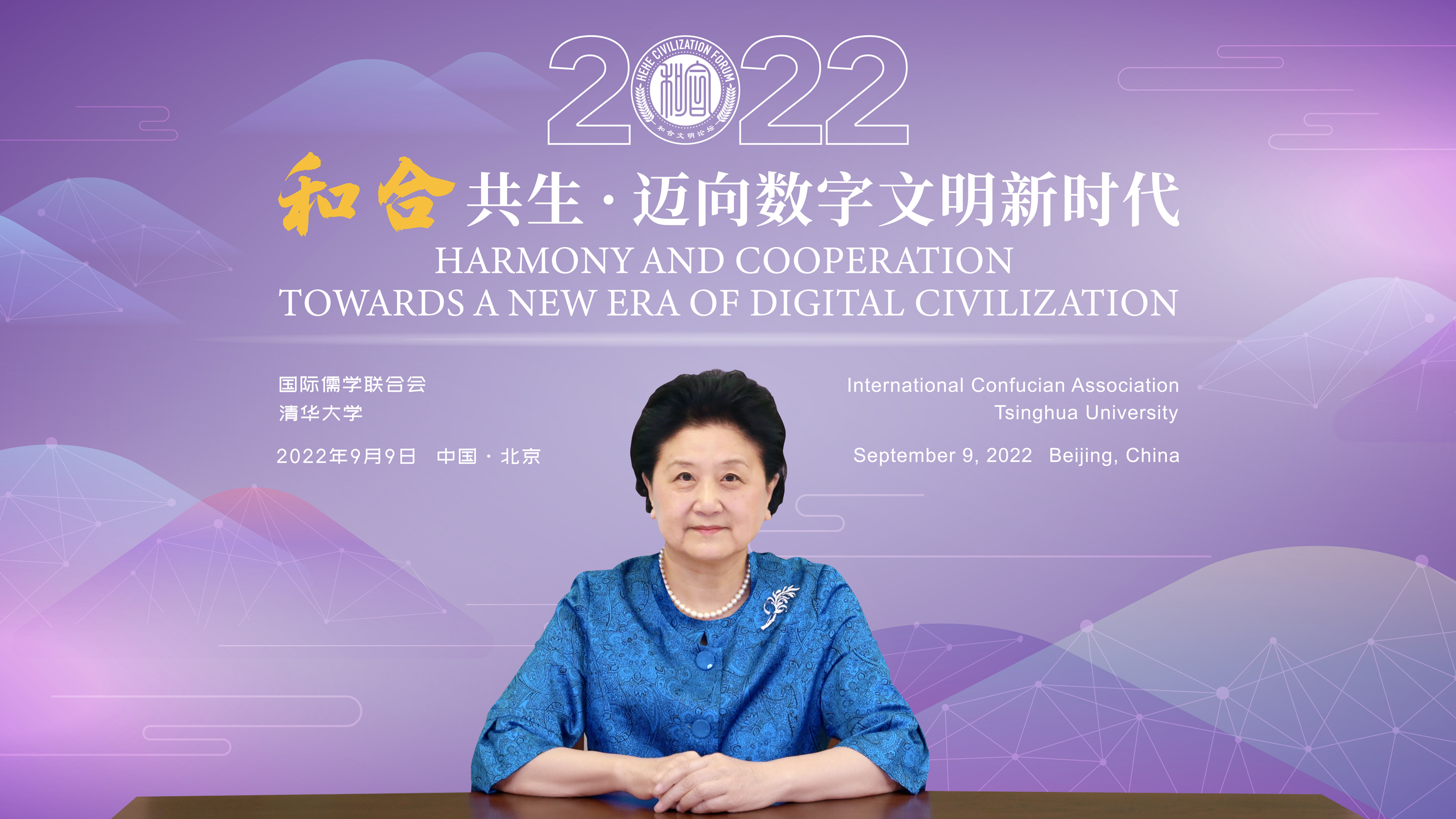
Liu Yandong, President of the International Confucian Association, said that the forum was being held to help pass on traditional culture, to uphold the diversity of world civilizations, and to promote exchanges and dialogue among different civilizations so that human civilizations can remain inclusive and harmonious.
The International Confucian Association is willing to play the platform role in integrating ancient and modern, the east and the west, contemporary values and ancient civilizations to promote exchanges and mutual appreciation in the era of digital civilization and to build a beautiful tomorrow, she added.
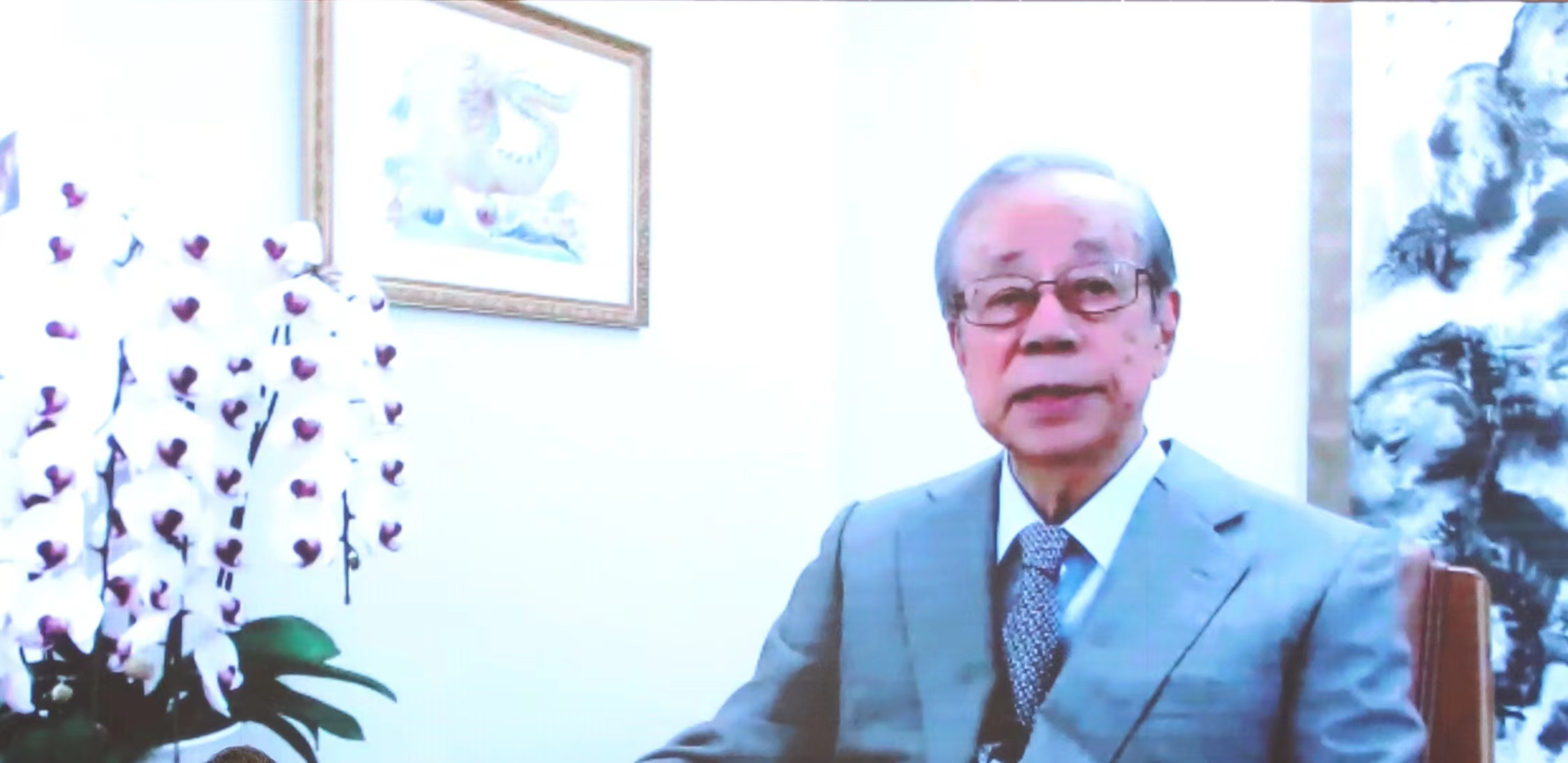
Fukuda Yasuo, Chairman of the International Confucian Association and former Prime Minister of Japan, highlighted the importance of dialogue in promoting harmony and cooperation across cultures during his opening remarks.
“No matter what difficulties we encounter, the key is to achieve harmony and cooperation with dialogue,” he said, emphasizing that countries should maintain trust among one another and work together to solve a wide range of issues on a global scale and promote cultural exchanges.
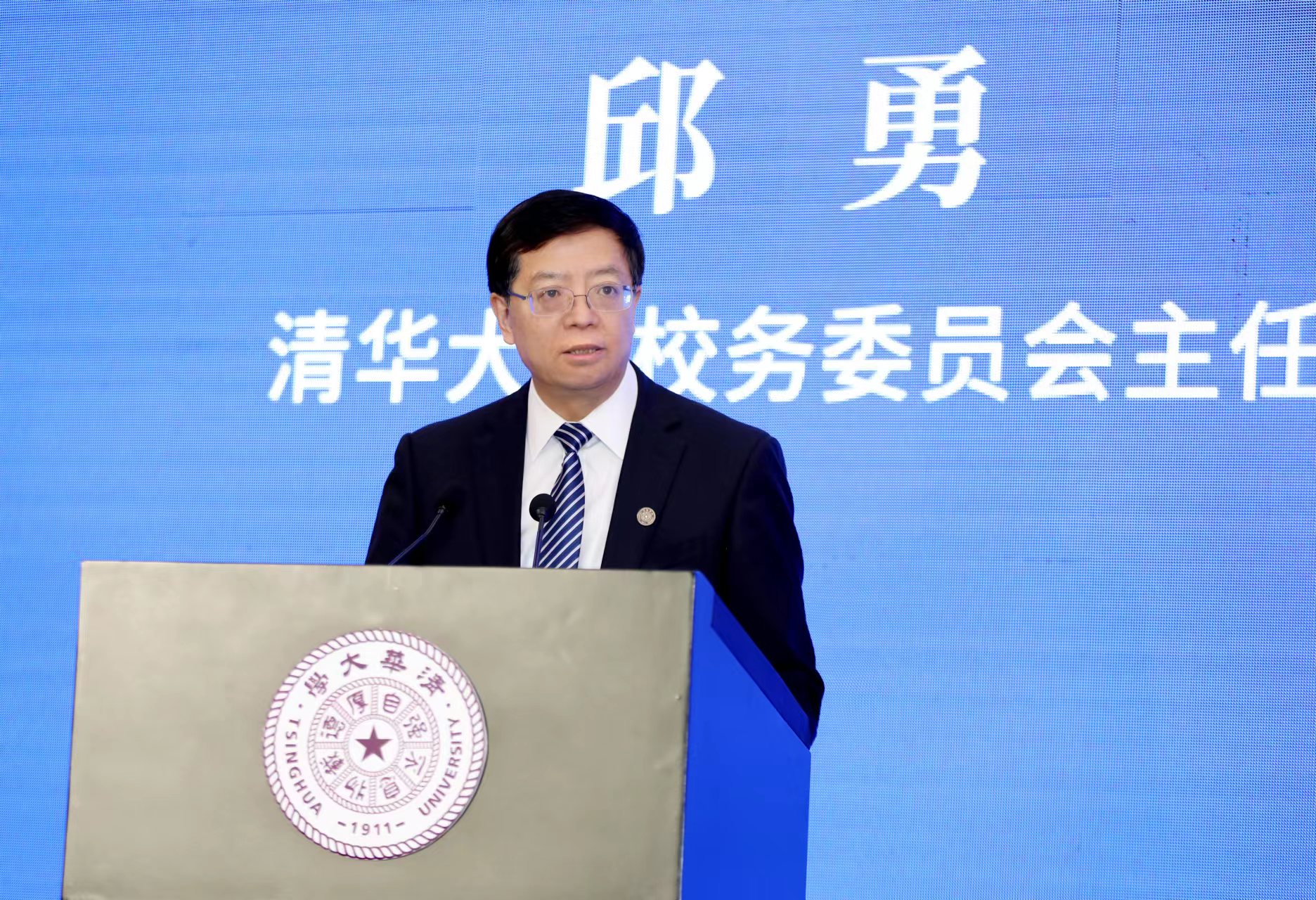
Qiu Yong, Chairman of Tsinghua University Council, delivered an opening address, highlighting the significance of universities in promoting digital civilization.
He said that in the digital era, universities should shoulder their responsibilities and make their contributions as they are the foundation and the source of technological breakthroughs.
He also maintained that universities should promote the utilization of digital technologies to pass down cultural heritage and to promote mutual respect and inter-independency among all cultures while creating sharing platforms for digital resources.
Stating that the digital era has brought about not only new opportunities but also new challenges, Qiu emphasized that it was important for all the stakeholders to work together to ensure that digital technologies benefit mankind. “I wish full success to the Harmony and Cooperation Civilization Forum.”
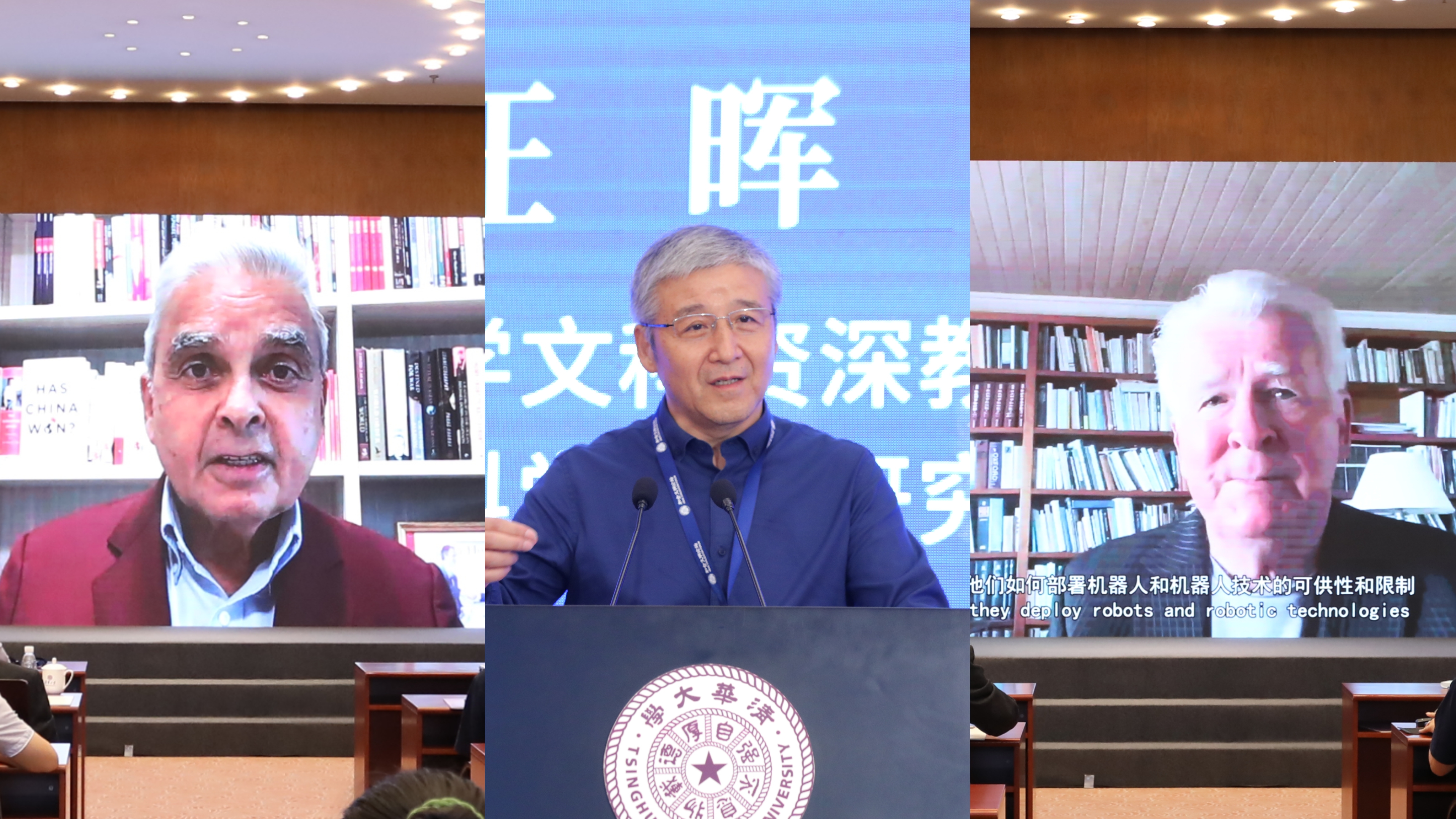
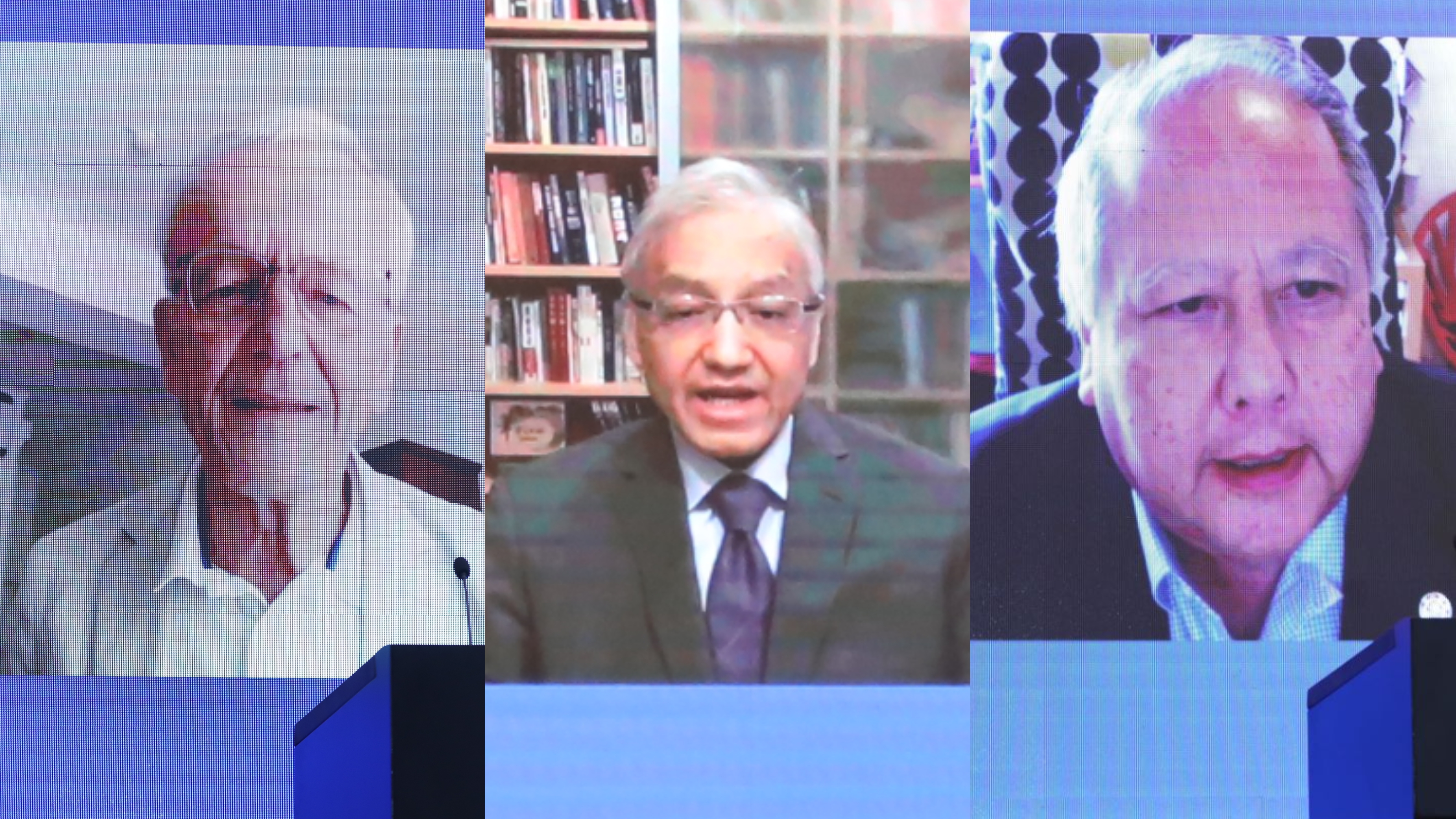
Kishore Mahbubani, former President of the United Nations Security Council and the founding Dean of The Lee Kuan Yew School of Public Policy at the National University of Singapore, said that the forum was timely as it addressed one of the most important questions of the time. He said that all the countries must come together in the United Nations and work out necessary conventions to create multilateral frameworks to manage the new digital space and new digital technologies
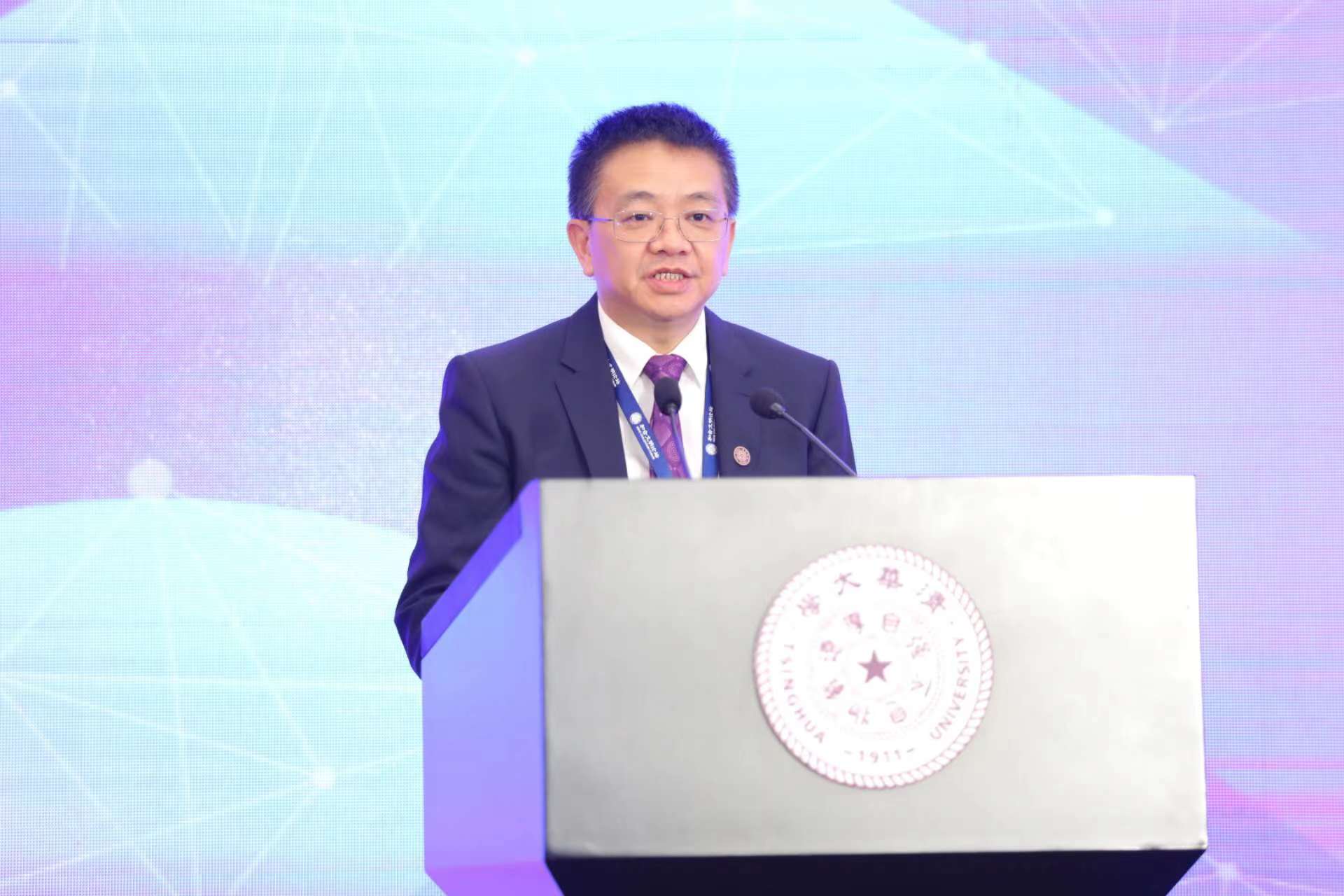
The opening ceremony was hosted by Peng Gang, Vice President of Tsinghua University.
Following the opening ceremony, several speakers delivered keynote speeches.
Wang Hui, Distinguished Professor of Arts, Humanities, and Social Sciences at Tsinghua, delivered his remarks on the topic of “Revelation of Asian-African Solidarity: Harmony in Diversity and New Internationalism.”
Roger T. Ames, Vice President of the International Confucian Association and Chair Professor of Humanities at Peking University, centered his speech on the evolving digital civilization and related new technologies.
Chu Yun-han, Professor of Political Science at Taiwan University and Member of the Advisory Board of the Institute for Chinese Culture, shared his thoughts on digital civilization and shared society.
Helwig Schmidt-Glintzer, Professor of East Asian Literature and Cultural Studies at the University of Göttingen, also Vice President of the International Confucian Association, made a presentation on how to promote harmony and cooperation in a new era of digital civilization.
Li Zhongqing, the Dean and Chair Professor of the School of Humanities and Social Sciences at Hong Kong University of Science and Technology, gave his remarks on the topic of “From the Best to the Rest: How Big Data and Digital Humanities Changed Our Understanding of Chinese Academic and Scientific Elite, from 1920 to 2020.”
Apart from keynote speeches, the forum also featured three panel sessions. The first panel session was entitled “Characters, Literature and Civilization in the Digital Era,” whereas the second and third panel sessions were entitled “Exchanges and Mutual Learning among Civilizations in the Digital Era” and “International Confucianism in the Digital Era,” respectively. The panelists in these sessions included distinguished professors and scholars from various universities and academic institutions attending online from around the world.
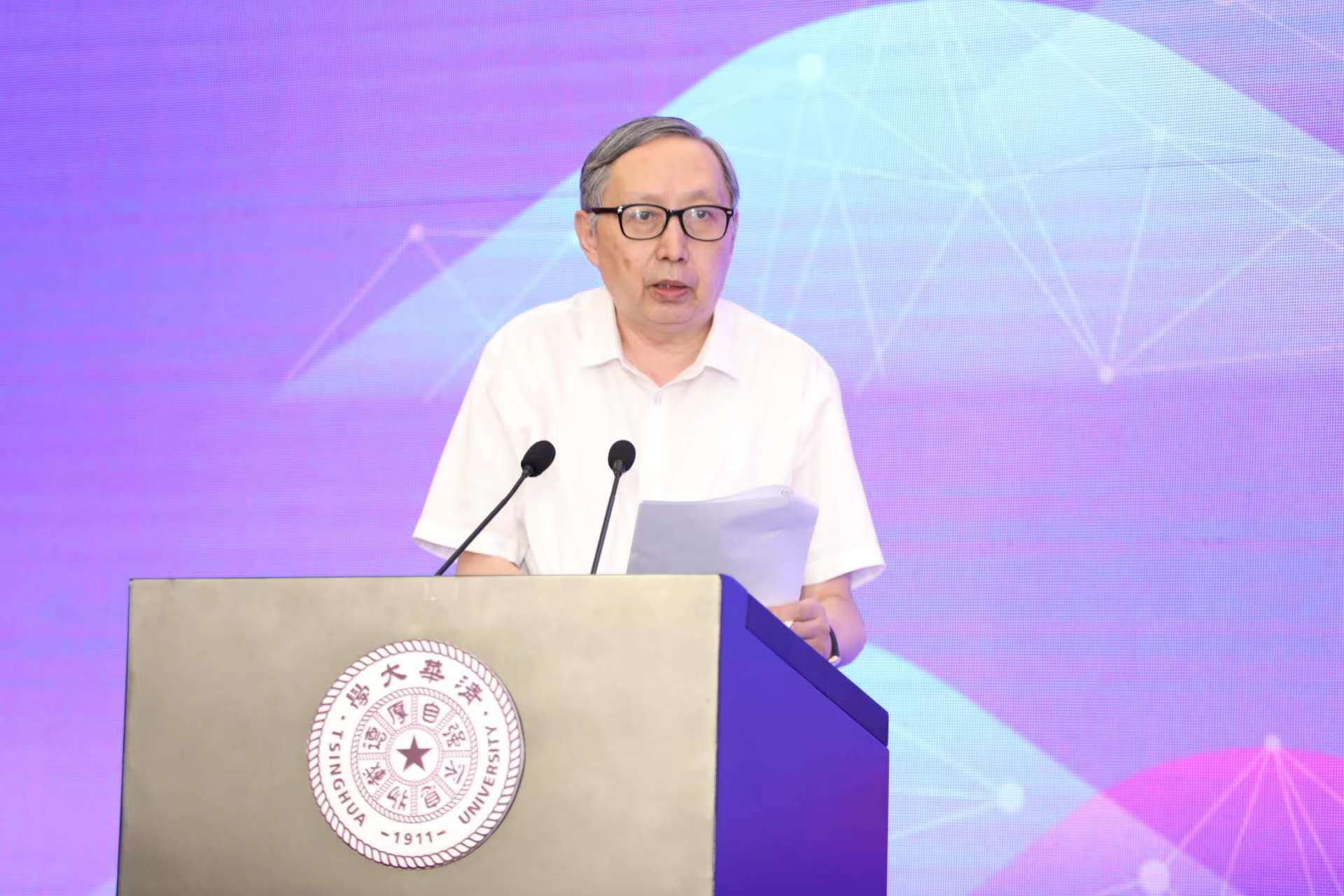
The forum concluded with closing remarks from Chen Lai, Distinguished Professor of Arts, Humanities, and Social Sciences at Tsinghua, Vice Chairman of the International Confucian Association and Director of the Tsinghua Academy of Chinese Learning.
The forum, which was held at the main building of Tsinghua University, adopted a hybrid online and offline format and was broadcast live in both English and Chinese on Tsinghua’s Rain Classroom.
Writer: Sangeet
Editor: Guo Lili